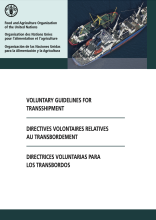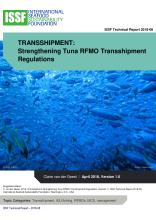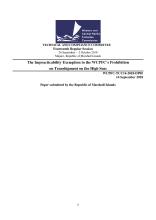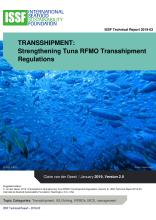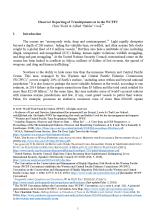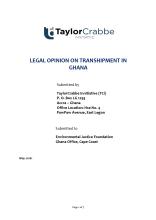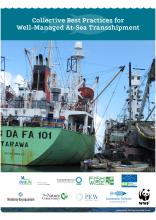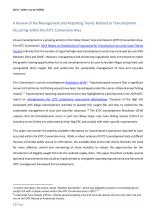Voluntary Guidelines for Transshipment
The Voluntary Guidelines for Transshipment address the regulation, monitoring and control of transshipment of fish, which have not been previously landed, whether processed or not. They are elaborated to complement and support existing and new efforts and policies recognizing that all available means in accordance with international law and other international instruments, should be used to prevent, deter and eliminate illegal, unreported and unregulated (IUU) fishing and fishing related activities in support of IUU fishing.
Topic
Language
